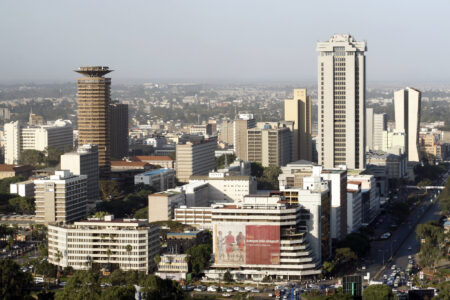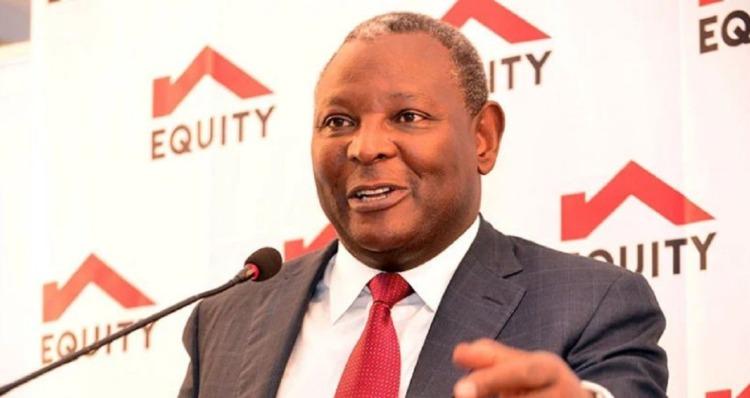- Libya joins Afreximbank and lines up mega projects to advance intra-African trade
- How Africa’s critical minerals is vital engine of regional growth and integration
- Strength in struggle: A Ugandan mpox survivor’s tale
- AFIS 2024: Here’s how we can grow Africa’s unicorns and gazelles
- African Energy 2024: Surging investment, waves of change
- AIM Congress 2025: Competition opens doors for Africa’s top tech innovators
- Zimbabwe rolls out $24M project to reduce use of mercury in gold mines
- Zambia secures $184M IMF support as economic growth set to decline to 1.2 per cent
Browsing: investing in Africa
- Africa is host to some world class companies that investors should consider adding to their portfolio in 2023. However, the investment climate has been choppy at best and investors need to be shrewd when it comes to their portfolio investment decisions especially in 2023.
- The investment climate was at the beginning of the year quite optimistic with the world finally putting COVID and its pandemic behind it. Investing in African companies would have been in a no-brainer given the circumstances around the world at this time.
- Things started to go side ways when Russia invaded the Ukraine and set in motion a chain of events which have profoundly altered the global investment climate and flow if investment capital which would otherwise be directed to the top African companies.
- The United States dollar was resurgent in 2022 nearing parity with the Euro and the Pound Sterling as the cost of living
It is hard to remember any decision that has ever harmed Kenya as much as the recommendation now before parliament that it adopts the European Union’s (EU) policies on agricultural inputs and phase them out. In fact, as the latest and most disastrous move yet by health policy-makers to take over the country’s agricultural policy, it is an overreach where ignorance could cost us 20 per cent of our entire GDP, as well as countless lives.
Also read: East African Trends: A focus on East Africa’s agribusiness investments
For there is nothing about the recommendation from the Parliamentary Health Committee to indicate it has examined the policies it wants introduced, or understood them, or assessed the impact on Kenya. Nor has it mentioned why the rest of the world – including Kenya itself – has moved into WTO disputes seeking the overturning of the very same policies, or why the …
I am by nature an optimist. A long and challenging life has tempered that optimism with a large dose of realism but I am definitely a “glass half-full” kind of man. As a regular contributor to The Exchange I don’t really want to blame another contributor for tipping me over the edge into downright pessimism but, having read the excellent piece by Eric Kimunguyi entitled, “Europe taking on the world to lock out agriculture” I am not of good heart. In fact, I cannot remember a time when I have been less optimistic about the financial future of the world economy.
The world financial system is even sicker than the world’s population. The Covid-19 pandemic is still having devastating effects on human health and wealth around the world – some 18 months after it first appeared. The world’s leading economies are broken and are still printing money to subsidise their
The shareholders of Equity Group Holdings Plc have passed resolutions that will reinforce the governance structures of the Group, continue to diversify the Board composition, and also assure investors of dividend pay-out every year as long as the Company posts profits.
In a statement, the Group says shareholders voted for the Amendment of Articles 1 and 79 of the Articles of Association of the Company thereby reinforcing its governance structure and signaling the growing significance of Equity Group Foundation as the social impact investment arm and custodian of the purpose of the Group.
Speaking after the AGM, the Group Board Chairman Equity Group Holdings Plc (EGH Plc), Professor Isaac Macharia said the move will further strengthen the structures to ensure the Board is reinforced through diversified representation for effective oversight.
“In so doing, the shareholders have passed a resolution enabling shareholders with more than 12.5 percent shareholding to participate directly …
Africa has abundant natural resources and holds immense opportunities for investors to unlock its full potential.
According to the International Monitory Fund (IMF), Africa’s hardwon economic gains for the last two decades which are critical in improving living standards can be reversed from the impacts of the pandemic.
The scope for growth through large public investment programs is limited by the uncertain outlook for international aid and the high public debts levels. In its statement, the IMF notes that if countries in the region are to enjoy a strong recovery and avoid stagnation, Africa’s private sector will have to be more involved in economic development.
According to IMF, the private sector should be involved in both social (health and education) and physical (roads and electricity) infrastructure.
“Africa’s infrastructure development needs are huge—in the order of 20 per cent of GDP on average by the end of the decade. How can …
The African continent has been portrayed in most literature as the “Dark Continent”, with not many expectations from it. This degrading view is slowly fading from the trending news globally, as the continent continues to headline great achievements.
There has not been a shortage of millionaires as well, with new six-figure worth individuals being added each year impacting the socio-economic outlook on the continent. …
[elementor-template id="94265"]
An educational approach especially one that combines study in key areas like Science, Technology, Engineering and Mathematics (STEM) is critical to achieving lasting change in the continent.
An educational-based development model is a revolutionary tool in the economic sector as it fosters innovation, problem solving and creativity in real-life situations.
The approach has been adopted in most countries globally, as well as in the African continent. It has a significant impact on society, the economy and the way people relate to the natural environment.…
[elementor-template id="94265"]
A survey conducted in 34 African countries between 2016 and 2018 shows that people are chiefly concerned about the future of work, be it job availability, quality, or growth. The gig economy is essential for the people of Africa because of its ability to provide a source of income to the inexperienced and unemployed majority. Formal jobs are only available to a few, while most people work in the informal sector as subsistence farmers, vendors, small-scale traders and numerous other roles.
Africa has a growing youth population that will need to be absorbed into the productive sector. An estimated 122 million new entrants are expected to join the labour market in the next two years, and it is impossible for an equal number of formal jobs to be created for these people.
…
[elementor-template id="94265"]
So…..one of the longest bull markets in history; the Covid-19 pandemic; two trillion dollars invested in a digital pyramid scheme (Bitcoin et al); government borrowing on an unprecedented level to deal with the pandemic; real trade tensions between China and the West; post-quantitative easing unemployment set to rocket; the stock markets being manipulated by large groups of retail investors; a new market dynamic caused by digitalisation; markets back to pre-Covid-19 levels……..what is an investor to do?!
The only thing that is certain is that, in the words of Chinua Achebe, “Things Fall Apart”. It is not a matter of “if” but “when”. Most commentators would suggest that the “when” will be within a maximum of 24 months and many think much earlier.

So if there is a global recession/depression on its way and if markets are …








